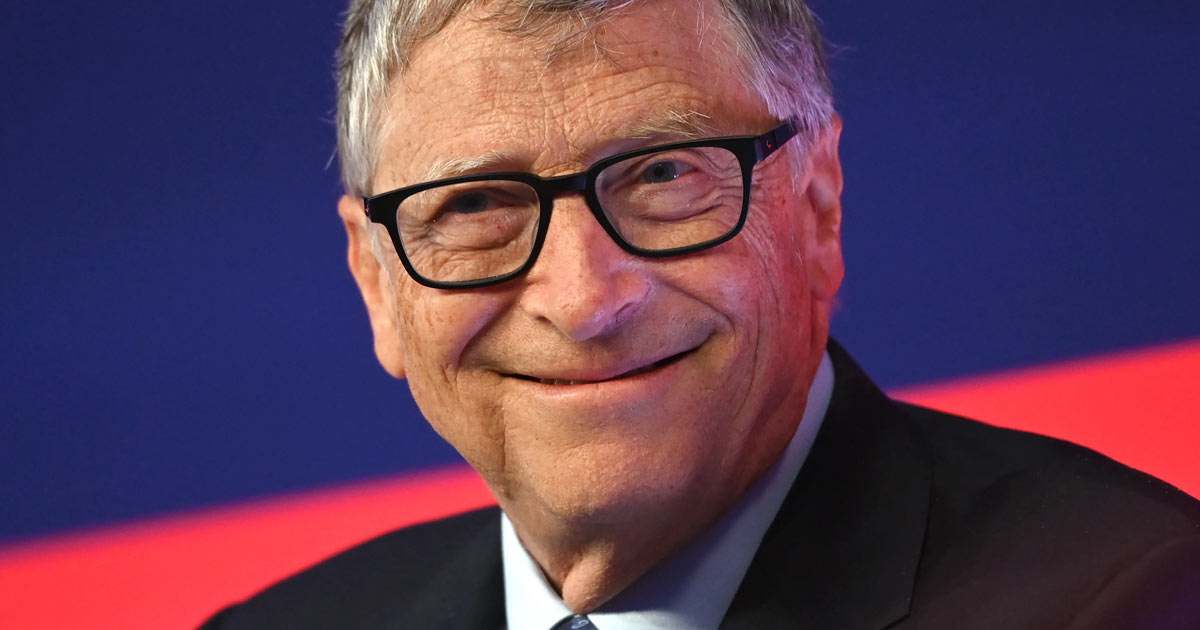Billionaire Bill Gates is doubling down on his vision for replacing traditional food with lab-made alternatives, this time funding a company that turns carbon dioxide and hydrogen into “butter.”
Gates’s Chicago-area startup, Savor, claims its patented process can create edible fats identical to those in dairy or vegetable oils without cows, cream, or farmland.
According to the company, the method produces zero greenhouse gas emissions, avoids palm oil deforestation, and could “heal the planet” by eliminating the environmental toll of traditional butter.
But critics warn that this is yet another step toward Gates’ long-standing agenda to reshape, and potentially control, the global food supply.
Savor’s CEO Kathleen Alexander says the process “bypasses agriculture entirely,” synthesizing fats from carbon in the air and hydrogen from water.
Food scientist Jordan Beiden-Charles claims the end product is “indistinguishable” from real butter in taste and texture.
The product uses just four ingredients: fat, water, lecithin, and “natural flavor.”
The company points out that traditional butter production accounts for roughly 7% of global fat-related emissions.
It’s unclear, however, why this is an issue.
By contrast, they say their “carbon butter” has zero environmental impact and could be on restaurant menus this year, with grocery store availability by 2027.
The company boasts that its products are designed to “feed our species and heal our planet.”
Gates, who has poured millions into “alternative protein” and synthetic “food” ventures, has repeatedly argued that traditional farming must be eliminated to “fight climate change.”
His critics say this is part of a broader globalist push to replace time-tested, locally produced foods with centralized, corporate-controlled substitutes.
Online detractors openly question whether the billionaire’s carbon “butter” is really about saving the planet or consolidating control over what people eat.
“Feeding our species” and “healing our planet” may sound noble, but opponents warn that these products bypass centuries of agricultural tradition and hand the future of food to technocrats.
The American Butter Association (ABA) blasted the product for using dairy terms.
The ABA is pointing to federal standards dating back to 1906 that define butter as coming from cows.
Critics also say Savor’s marketing could mislead consumers into thinking it’s a natural dairy product when it’s actually made in a lab.
The debate mirrors other fights over lab-grown “meat,” plant-based “burgers,” insect-based “foods,” and synthetic sweeteners.
All are touted as eco-friendly breakthroughs while benefiting globalist elites rather than the general public.
As a result, these products often face skepticism from consumers who don’t trust billionaire-backed food experiments.
While Savor claims the product is “identical” to natural butter on a molecular level, questions remain over whether prolonged consumption of lab-synthesized fats could impact human metabolism, hormone balance, or gut health.
Unlike traditional dairy, which has centuries of human dietary history, “carbon butter” is brand new, and no long-term human studies exist.
Critics warn that once lab-grown foods enter the supply chain, regulatory oversight often lags behind, leaving consumers as unwitting test subjects.
And if the product is widely adopted, a single company, backed by one of the world’s richest and most influential men, could control a key staple in global diets.
Whether “carbon butter” becomes a common pantry staple or a failed curiosity will depend on public acceptance, regulatory battles, and whether consumers are willing to trade pasture-raised dairy for a spread literally made from air.
But as Gates pushes forward, the war over the future of food and who controls it is just heating up.
READ MORE – Canada Advances Plan to ‘Vaccinate’ Public with Bill Gates-Funded Covid mRNA Aerosols

Our comment section is restricted to members of the Slay News community only.
To join, create a free account HERE.
If you are already a member, log in HERE.